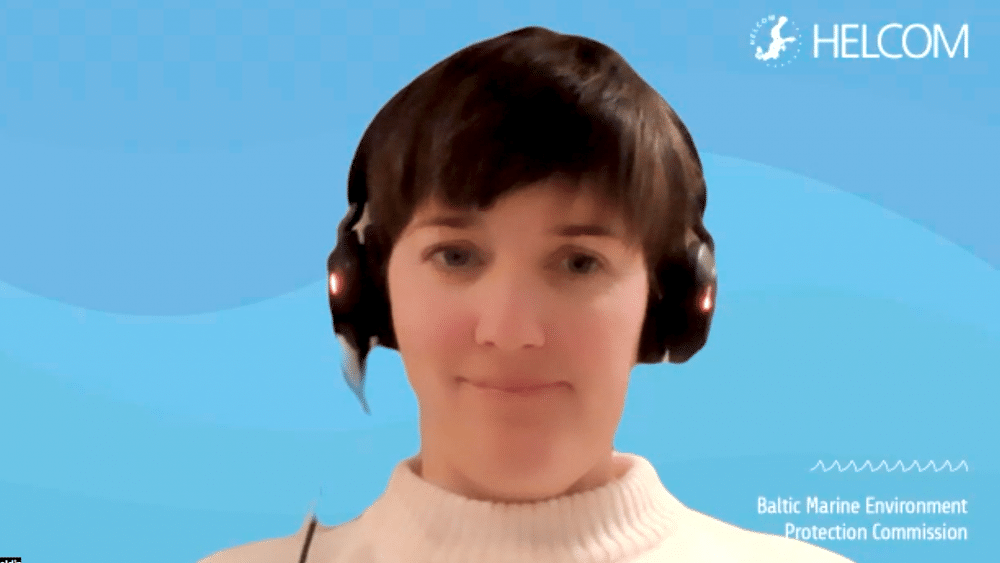The policy of the Baltic Sea region countries has improved over the past few years, but this has not yet translated positively into the ecosystem. Eutrophication, overfishing, waste and hazardous substances resulting from human activity are seriously damaging on the one hand, and climate changes on the other. Their impact on the Baltic Sea is even greater than in other bodies of water and will increase in the coming years, leading to losses in tourism and fishing. This is indicated by the latest report of the Helsinki Commission (HELCOM). According to the commission, improving the ecological condition of the region could bring substantial benefits for the region’s inhabitants – about €5.6 billion annually.
The Baltic Sea is a unique body of water characterized by low salinity and difficult access to ocean waters. The only place it connects with the Atlantic Ocean through the North Sea is the narrow Danish straits. Natural barriers, including numerous islands, contribute to the slow water exchange process in the Baltic – it takes as long as 30 years. WWF Poland emphasizes that for this reason, all substances introduced into the Baltic remain in it for over a quarter of a century.
“The state of the Baltic Sea is unfortunately poor,” says Jannica Haldin, Deputy Executive Secretary of the HELCOM Marine Environmental Protection Commission. “Over the past ten years, we have not observed a significant improvement in the state of the Baltic Sea ecosystem. On the contrary, in some geographical areas, we have even noted a deterioration.”
The 2011–2016 HELCOM assessment showed that over 96% of the Baltic Sea in terms of eutrophication was still classified below a good state, including the entire area of the open sea and 86% of coastal waters. According to the HELCOM report published at the end of last year (“State of the Baltic Sea 2023”), there was virtually no improvement in the Baltic Sea ecosystem between 2016 and 2021.
Eutrophication, pollution and resource extraction are contributing to the degradation of the biological diversity of the Baltic. In the case of fish, the condition of only four out of 25 commercially fished species was described as “medium good”. While conditions have improved for salmon, they are still far from good. The European eel remains critically endangered.
“Fishing and tourism are sectors directly dependent on the state of the Baltic. At the moment, due to the deterioration of the ecosystem, both sectors are suffering considerable losses. In terms of fishing, we see a rapid depletion of fish stocks of all species throughout the Baltic region. This, in turn, negatively affects the livelihood of people who depend on fishing. On the other hand, tourism is suffering losses due to, for example, algal blooms or occasional beach bans. The situation is worsened by the fact that these blooms often occur during the peak season, as algae like the same conditions as we do, namely warm, windless and sunny weather. In terms of annual losses, the tourism industry losses due to this reason amount to billions of euros,” said Haldin.
HELCOM estimates that achieving a good status of the marine environment by 2040 will bring benefits of the order of €5.6 billion annually for the inhabitants of the Baltic Sea region.
According to the report, climate change already has a significant impact on the state of the Baltic Sea. According to HELCOM, their influence is even greater than the average for other water bodies. They lead to an increase in water temperature, a reduction in ice cover and a greater number of extreme weather events. These factors reinforce the serious consequences of human activities, including pollution with dangerous substances and overfishing and destruction of fish habitats.
“Three years ago HELCOM published an information sheet on climate changes for the Baltic Sea. It was the result of the cooperation of over 100 scientists from the region, who researched what changes have already occurred and what we can expect in the horizon of the next 50-100 years, and what they actually mean, what consequences are associated with them,” said the representative of the Helsinki Commission.
In 2021, the countries of the region agreed on a new version of the Baltic Sea Action Plan from 2007 to improve the condition of the water body and enhance its biological diversity. The strategy includes specific objectives in four segments: biodiversity, eutrophication, hazardous substances and waste and maritime activities. One of the goals in the plan is to protect 30% of the Baltic’s surface by 2030.
“There are good chances for this. At least two Baltic states have already achieved this indicator or have taken actions to this end. The other countries are also making efforts in this direction, striving to ensure that the protection provided brings the greatest benefits. We must remember that it is not so much about the indicator itself, as about increasing biodiversity through protection and the improvement of the ecosystem that follows. It is therefore important to carry out this task in a wise and strategic manner. I think that the cooperation of Baltic states in this area has been very effective so far. The individual protected areas create a network. Those created in Poland support others functioning in neighboring countries and throughout the Baltic. Borders created by humans do not matter – for the Baltic, for individual species or habitats it does not matter whether the protected area is in this or that country,” emphasized the HELCOM expert.
She added that actions for the improvement of the Baltic Sea must be carried out both at the level of individual countries and in the framework of international cooperation.
